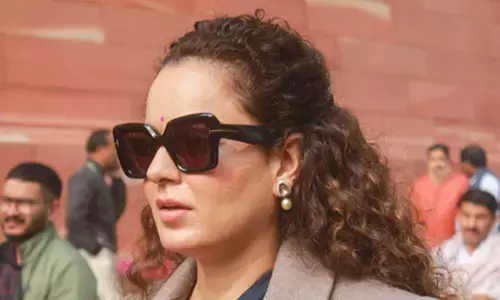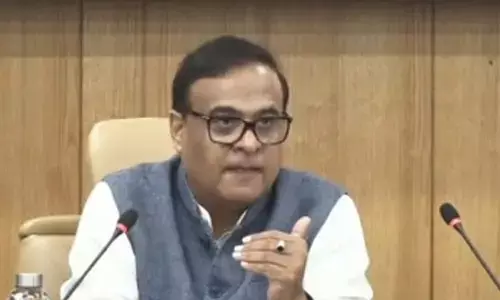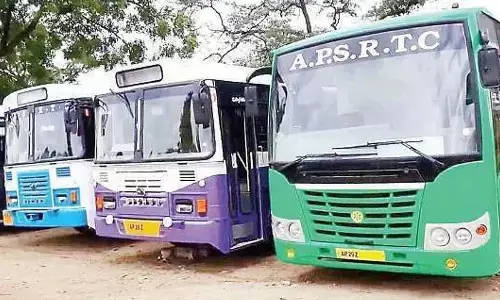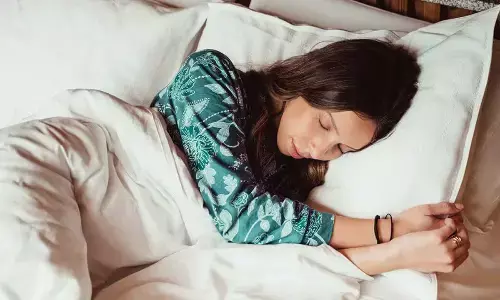Women still far from being equals
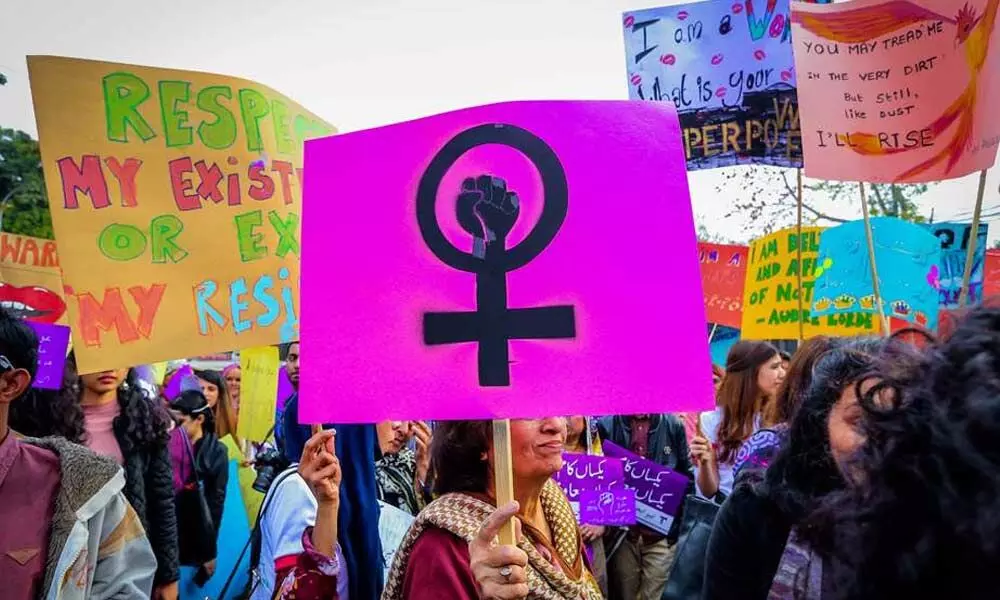
Women still far from being equals (Representational image)
Justice K Murali Shankar of Madras High Court passed not only a landmark judgment but also made some pertinent observations in a molestation case recently, which should initiate a greater debate on the rights of women and, more so, the rights of a woman with disabilities in the country
Justice K Murali Shankar of Madras High Court passed not only a landmark judgment but also made some pertinent observations in a molestation case recently, which should initiate a greater debate on the rights of women and, more so, the rights of a woman with disabilities in the country. He said, "women with disabilities are often doubly discriminated against, as women and as people with disability," while expressing a wish that all men treat women well in the society.
In confirming the trial court's conviction and seven years' rigorous imprisonment for offences punishable under Section 354B (assault or use of criminal force to woman with intent to disrobe) and Section 342 (punishment for wrongful confinement), the Judge commented: "Despite the imposition of severe punishments, the attitude of society towards women is not changed completely.
Violence is something she is born with, from womb till grave. In the present case, the victim is a woman with speech and hearing disability, considering the nature and seriousness of the offence committed against the hapless lady, the punishment imposed cannot be said to be excessive." Attaining equality between women and men and eliminating all forms of discrimination against women are fundamental human rights and United Nations values. Women around the world nevertheless regularly suffer violations of their human rights throughout their lives and realising women's human rights has not always been a priority. The problem is more so in our country where women are discriminated against in every sphere every day.
Achieving equality between women and men requires a comprehensive understanding of the ways in which women experience discrimination and are denied equality so as to develop appropriate strategies to eliminate such discrimination. However, important gaps remain, and women's realities are constantly changing, with new manifestations of discrimination against them regularly emerging.
Some groups of women face additional forms of discrimination based on their age, ethnicity, nationality, religion, health status, marital status, education, disability and socioeconomic status, among other grounds. These intersecting forms of discrimination must be considered while developing measures and responses to combat discrimination against women. The Constitution of India also recognises these rights in form of various fundamental rights and guarantees equal rights to both men and women without any discrimination yet the actual condition of the women's human rights in India cannot be said satisfactory.
There exists a huge gap between de facto and de jure conditions due to the present structure of Indian society and practices prevalent in it. We have a patriarchal society where male domination continues over females. The latter have to face discrimination, injustice and dishonour based on gender in every walk of life. Majority of Indian women remain unaware about their rights. The legislature and policy framers of India have made multiple laws, rules and regulations ensuring rights of women but proving ineffective because all are limited to 'Act' instead of 'Action'. Alas, this is a society that practices discrimination even at home! What else can we expect from this society where parents nurture their children with such discriminatory attitudes?








